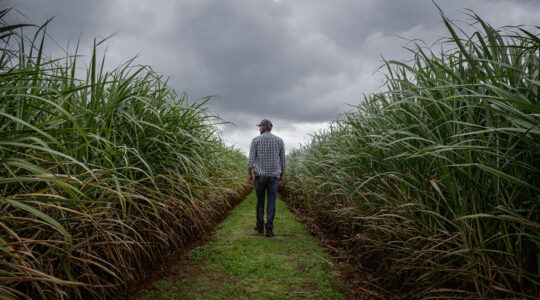By McCullough Robertson Lawyers
Concerns are growing about Queensland’s renewable energy future following the rejection of the Moonlight Range Wind Farm Project.
On May 26, 2025, Deputy Premier and State Development Minister Jarrod Bleijie used his ministerial powers to refuse the project’s development application, despite it having received conditional approval from the State’s Planning Department in December, 2024.
This marks the Crisafulli Government’s first refusal of a renewable energy project since introducing a new assessment regime in February 2025, prompting industry fears about regulatory uncertainty and the State’s ability to retroactively revoke decided development applications.
Proposed by Greenleaf Renewables, the Moonlight Range Wind Farm included plans for 88 turbines and a battery energy storage system (BESS) near Rockhampton. With a 450 MW capacity, the project was expected to power 260,000 homes and create up to 300 jobs during its construction.
The decision comes in the wake of the Planning (Wind Farms) Amendment Regulation 2025 (Qld), which took effect in February, 2025 and significantly changed how wind farm development applications are assessed under the Planning Act 2016 (Qld).
The amendments deliver on the Crisafulli Government’s election commitment to make renewable energy projects impact assessable, aligning this approval process with other land uses like mining and agriculture, and ensuring more robust consultation with local councils and communities.
Under the Planning Act, the Minister has discretionary “call-in” powers to assess or reassess development applications where a State interest is identified. This includes the authority to determine which assessment benchmarks apply, such as the updated Wind Farm Code introduced through the February amendments.
Following the decision to approve the Moonlight Range Wind Farm in December 2024, on conditions, Minister Bleijie began the call-in process in January, 2025. On April 8, 2025, the application was formally called in, giving the Minister full control over the reassessment process, including expanded community consultation requirements, before ultimately refusing the project in May 2025 through a notice of decision to the developers.
The refusal was based on a detailed assessment by the Department of State Development, Infrastructure and Planning, which examined environmental impacts, planning issues, and human rights considerations. Minister Bleijie cited insufficient community consultation and a lack of local support, stating the project failed to meet the new assessment benchmarks for wind farms.
Greenleaf Renewables expressed disappointment in the decision, highlighting the project’s potential to support regional development and meet Queensland’s energy needs. As the Minister’s call-in decision is final and not subject to appeal under the Planning Act, the company says it will review the feedback and consider its next steps.
The decision has heightened concerns about policy instability, sending potentially troubling signals to investors and developers about the viability of renewable energy in Queensland. The retroactive refusal of a conditionally approved project is seen as creating sovereign risk, undermining confidence in the government’s willingness to honour its own regulatory decisions and increasing perceived investment risk across the sector.
Katie-Anne Mulder, Chief Executive of the Queensland Renewable Energy Council (QREC), urged the government to clarify how this decision will not set a precedent, and has warned that revoking approval post-assessment could damage investor confidence not just in renewables, but in major infrastructure development more broadly. The industry, she said, needs clear assurance that once approvals are granted by the State, they will be respected.
This article was authored by Madeline Simpson, Liam Davis, Kate Swain, Andrew Bukowski and Julia Clarke from McCullough Robertson Lawyers.








